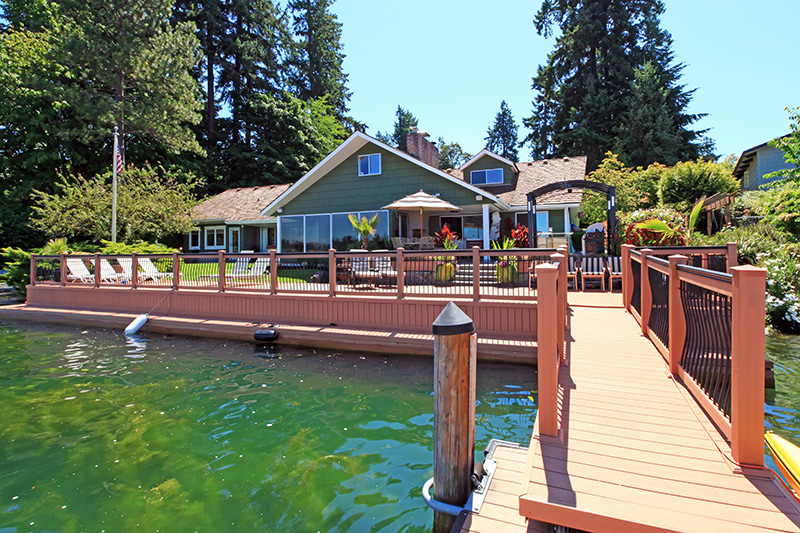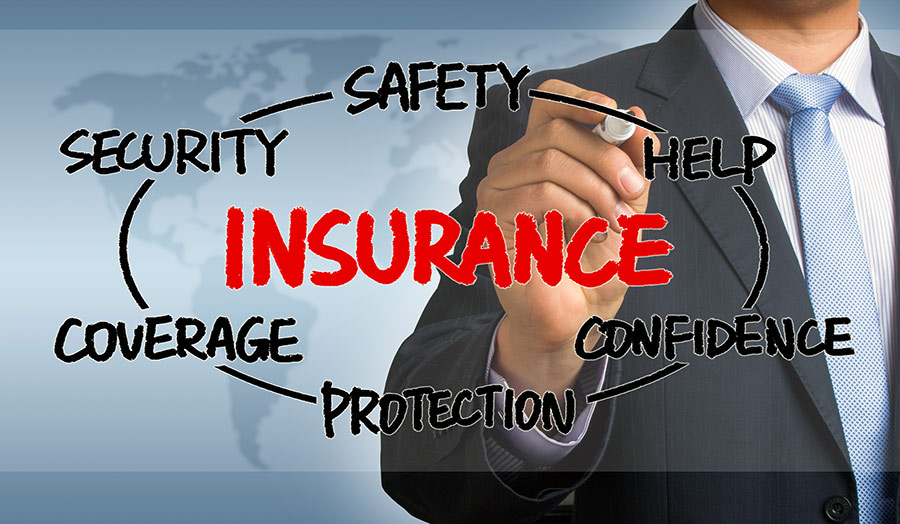
Do you have flood insurance? Do you need flood insurance?
If you don’t know, keep reading.
Of all the natural disasters that affect us, floods are the most common. In fact, homeowners are five times more likely to deal with flood than fire damage. (And your chances increase if you live in a medium- or high-risk area for floods.)
Flood damage can be expensive to repair. The National Flood Insurance Program (NFIP) estimates a six-inch flood that hits a 2,000-square-foot home is likely to cause about $40,000 in damage.
On top of that, most standard homeowners and renters insurance policies don't cover flood damage.
Homeowners and Renters Policies Don't Cover Flood Damage
Typical homeowners insurance policies don't cover flood damage.
Most people ignore flood insurance for this very reason. They assume the insurance they have will protect them from the aftermath of a flood.
You have to go out of your way to buy flood insurance as a separate policy from the NFIP. The Federal Emergency Management Agency (FEMA) administers this insurance as does one of the 80 private insurance companies that provide flood coverage.
More Reasons Why You Shouldn't Ignore Flood Insurance
People overlook flood insurance because they think they don’t need it.
Statistics show US homeowners (and renters) are likely to deal with flood damage at some point in their lives.
Chances are higher if you live in an area that's considered “high risk” for flooding. There’s a one in four chance of experiencing a flood during the life of a 30-year mortgage in high risk areas.
Low- or moderate-risk areas field almost 25 percent of flood-damage claims. So, flood insurance is a good idea no matter where you live.
When You Are and Aren't Required to Have Flood Insurance
Do you live in a high risk area? Is your mortgage with a federally regulated or insured lender?
If you answered yes to both questions, you're required to have flood insurance.
If you live in a moderate- or low-risk area, you aren't federally obligated to have this kind of insurance, although some lenders may still require it.
In some situations, government aid is available for flood damage to homeowners who didn’t have flood insurance. However, if they want to quality for future aid, they need to purchase a flood policy first.
Is One Rate Just Like the Other?
Flood insurance rates are set nationally and don’t differ from company to company or from agent to agent.
BUT, don't take that to mean that everybody pays exactly the same amount of money for this kind of coverage. What it means is that, all things being equal, the quote that you receive from one agent will be the same as one you receive from another agent.
That particular rate is based on a number of factors. Including the age of your home or building, how it was built, the elevation of your property, and its overall flood risk.
You can find out what that rate would be by requesting a quote for a flood insurance policy.
Contemplating Coverage Impacts and Limits
Another factor companies take into consideration when determining your rate is the desired amount of coverage.
Be aware that standard flood policies place certain limits on the coverage they offer.
Homeowners can buy a maximum coverage of $250,000 for buildings. And up to $100,000 for the contents.
Buildings may include the actual structure and its foundation, as well as any air-conditioning, electrical, heating, and plumbing systems and equipment.
Business owners can buy up to $500,000 in structure coverage and $500,000 in personal property coverage.
If your building is worth over $250,000, you'll have to buy excess flood insurance. This increases your coverage limit to $750,000. (Businesses can extend their coverage up to $1 million.)
Don't Worry, It's Easy to Buy
Despite the fact that flood insurance is a separate policy, it isn't difficult to purchase.
In fact, it may be easier to buy than some other forms of insurance. Options are limited to private companies and agents that have partnered with the NFIP.
A Few More Things You Should Know About Flood Insurance
There's a 30 day waiting period. In most cases, flood insurance policies won’t take effect until after that period is over.
You'll still be eligible for government aid. Having flood insurance won't prevent you from receiving government aid if you live in an area declared as a federal disaster area due to flooding.
Government aid isn't a suitable alternative to a flood policy. You may be thinking, "Hey, why should I bother paying for insurance when federal disaster assistance will bail me out?"
The reality is government aid isn't all it's cracked up to be. There are a few reasons for that.
First, before a community can become eligible for this assistance, it has to be declared a federal disaster area. And these declarations are issued in less than 50 percent of flooding incidents.
Second, federal disaster aid usually takes the form of a low-interest loan. The loan is designed to help pay for the repair of flood damage. It isn’t straight compensation that doesn't need to be repaid.
A flood is a fairly specifically defined event. Just because your basement fills up with water after a torrential rain storm, doesn't mean the resulting devastation will be covered by your insurance policy.
For that to happen, the flood has to affect two or more properties. Or, if affects only your property, it has to have covered two or more acres of land.
Also, you might want to note that damage from wind-driven rain--such as when rain comes through a hole in a wall or roof, or through a wind-damaged window--isn't considered flood-related.
For more information, contact Lallis & Higgins Insurance.
quotewizard.com





